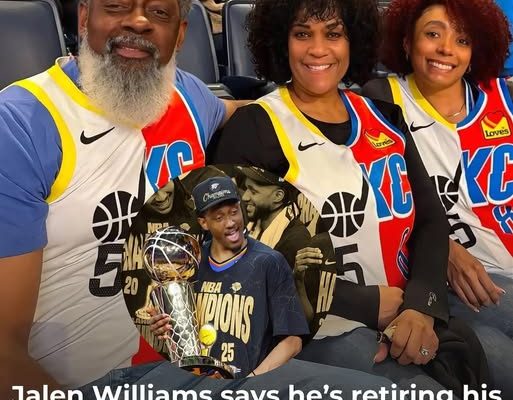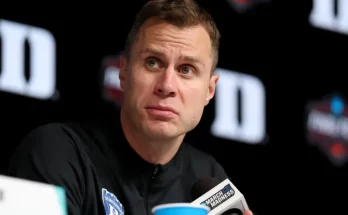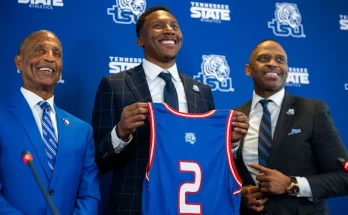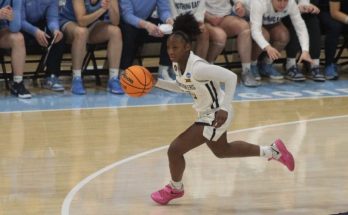The world of professional basketball has always been filled with stories of rags-to-riches journeys, but few narratives resonate more powerfully than when a player not only achieves greatness on the court but also lifts his family in ways previously unimaginable. That’s exactly what unfolded recently with the Oklahoma City Thunder’s rising star, who, fresh off a historic NBA Championship win, inked a monumental five-year, $287 million contract extension. In a revealing interview with TMZ, the young phenom opened up about what the deal truly means to him—not just in terms of career validation or financial security, but in the deeply personal victory of being able to tell his parents they no longer have to work another day in their lives.
His statement, though brief, was filled with the kind of emotion that transcends sports. “It’s surreal,” he told the camera, a word that has echoed across social media platforms since the interview aired. And how could it not be? For a young man who was once just a kid with a dream, dribbling on the cracked pavement of a neighborhood court, to now be the centerpiece of one of the most exciting teams in the league, it’s a moment of culmination. It’s about more than basketball—it’s about breaking generational barriers.
This deal not only sets a new precedent in the Thunder franchise history but also underscores the team’s commitment to its young core. After a postseason that electrified the basketball world and culminated in OKC lifting the Larry O’Brien Trophy, the front office wasted no time in locking in one of its most pivotal players. The timing of the extension, coming just weeks after the championship celebration parade, speaks volumes about how integral Williams is to the Thunder’s long-term vision.
And yet, the money itself, as staggering as it is, isn’t the headline here—not to Williams, anyway. For him, the most meaningful part of the deal was being able to sit down with his parents and say those words: “You don’t have to work anymore.” That moment wasn’t just the end of their labor; it was the reward for every sacrifice they had made along the way. From early morning drives to AAU tournaments, to working extra hours so their son could attend elite basketball camps, his parents had invested in his dream when it was nothing more than that—a dream.
In the NBA, such grand gestures aren’t unheard of, but each instance carries a unique weight depending on the journey behind it. Williams’s rise has been swift but not without its trials. A second-round draft pick out of Santa Clara, many analysts pegged him as a high-upside project rather than an immediate impact player. But through relentless work, clutch performances, and an ever-growing basketball IQ, he quickly became a fan favorite in Oklahoma City. His unselfish play, paired with a fearlessness in crunch-time moments, made him a pillar in the Thunder’s championship quest.
During the Finals, he averaged close to 22 points, 7 assists, and 5 rebounds per game—numbers that only begin to tell the story of his influence on both ends of the floor. His versatility, his ability to guard multiple positions, and his chemistry with fellow stars like Shai Gilgeous-Alexander and Chet Holmgren elevated the Thunder to a level many didn’t believe they’d reach for another two or three years.
Yet what perhaps stood out most wasn’t his stat line or even the championship ring now adorning his finger—it was the humility he carried throughout the entire run. In every postgame press conference, every media appearance, Williams always redirected praise to his teammates, coaching staff, and yes, his family. So it’s only fitting that when asked what this massive extension meant to him, he didn’t boast about luxury purchases or celebrity circles. He spoke about home. He spoke about giving back to the people who gave everything to him.
Social media, predictably, erupted in celebration after his TMZ interview aired. Fans from across the country—and especially from Oklahoma—hailed him as not just a superstar on the court, but a model of character off of it. Posts flooded in with hashtags like #FamilyFirst and #WilliamsWay, as video clips of his interview spread virally. Current and former players chimed in too, many applauding his humility and priorities.
“Man, this is what it’s all about,” tweeted former NBA star Dwyane Wade. “Changing your family’s life forever. Respect.”
LeBron James reposted the interview on Instagram with a simple caption: “King move.”
What’s also notable is how this deal repositions the Thunder in the broader landscape of the NBA. With Williams under contract through his prime years, and young stars like Holmgren and Gilgeous-Alexander also committed, OKC has emerged not just as a reigning champion but as a potential dynasty in the making. Their young coach, who orchestrated a defensive identity few teams could crack during the playoffs, now has the continuity needed to build something truly historic.
The front office, long praised for their asset accumulation and drafting prowess, has now transitioned into a new phase—championship retention. And retaining Williams, both symbolically and strategically, is as big a move as any trade or draft night coup.
But for all the strategy and planning, the emotional core of this story remains personal. Williams’s message is not just one of success, but of gratitude. His rise through the ranks, from under-recruited high school guard to NBA champion and multi-millionaire, is proof that belief, when matched with work ethic and opportunity, can create seismic change—not just for an individual, but for entire families.
Stories like his serve as a reminder of why sports hold such a unique place in our collective culture. They allow us to see pieces of ourselves in the athletes on the screen. We see our own dreams reflected in their triumphs. And when someone like Williams takes the time to acknowledge the shoulders he stood on to reach his current heights, it humanizes a world often viewed through the lens of celebrity and wealth.
Even as the Thunder prepare for next season with the weighty title of “defending champions,” Williams isn’t showing signs of being distracted by the glitz. According to those close to the team, he’s already back in the gym, working on his mid-range game and increasing his strength to better defend bigger forwards. The message he’s sending is clear—he may have reached the mountaintop, but he’s not content to stay idle. He wants more rings, more memories, and more moments to share with the people who matter most.
And while the media will continue to dissect the statistical impact of his extension and what it means for OKC’s salary cap structure, fans will remember the moment he gave back to his parents as the real highlight. Because in the end, this isn’t just a story about dollars and cents. It’s a story about legacy. It’s about how one player used his platform to honor his roots. It’s about the love that built him, the sacrifices that shaped him, and the promise that carried him forward.
In a league full of flash and spectacle, it’s these moments of authenticity that stand out. Williams’s $287 million contract may be written in ink, but the love and loyalty he’s shown to his family—that’s written in something far more permanent.



